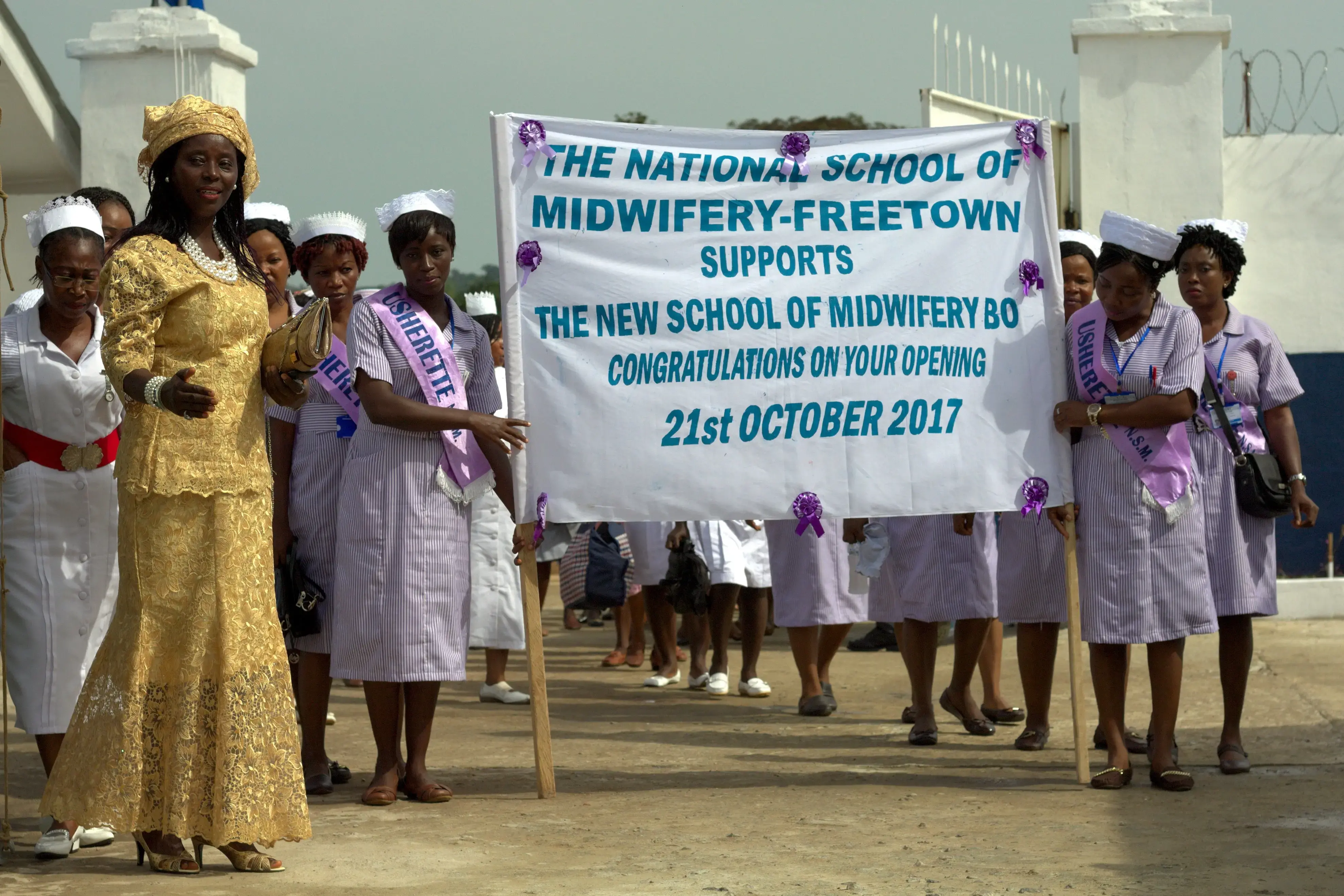FREETOWN, Sierra Leone, 2 June 2022- Taking issue with the public view of midwifery as a profession reserved for females, Suliaman Tarawallie chose to break with that stereotype when he enrolled to study midwifery at the School of Midwifery in Makeni some seven years ago, becoming one of the few male midwives in the country.
“I am proud of my contribution to society as a midwife. Now, many people know me because of my work in the maternity wing of the hospital, all thanks to the support I got years back,” said the father of four, now working as a midwife at the Kambia Government Hospital.
Midwives contribute to meeting Sustainable Development Goals (SDG) 3 of reducing the country’s maternal mortality ratio to less than 70 per 100,000 live births.
With about 1,300 midwives and a yearly turnout of 150 midwives, Sierra Leone faces a challenge in meeting the SDG 3 target of 3,000 midwives by 2030.
The State of the World’s Midwifery 2021 report projects a severe shortage of midwives in Sierra Leone in 2030. The report also recommends close monitoring of the current situation where most midwives are aged between 34 to 54 years and are nearing retirement.
With funding from the United Kingdom’s Foreign, Commonwealth and Development Office (FCDO), UNFPA supports the three schools of midwifery in Bo, Makeni and Freetown. The support, in the form of scholarships and strengthening the preceptorship programme and training of preceptors based at clinical placement sites, has over the last 10 years contributed over 1,200 additional trained midwives. In 2021 alone, UNFPA supported the training of 258 midwives.
When Suliaman heard from a friend of the support for the School of Midwifery in Makeni, he took it as an opportunity to enrol, after completing his State Enrolled Community Health Nurse course.
“I went into it [midwifery] with a desire to save lives. Whatever sacrifices one makes, it should be done with dedication to serve diligently, and that was what motivated me to enrol into the midwifery course,” he said. “When I applied at the School of Midwifery in Makeni (SOMM), I was fortunate to be supported by UNFPA, more so as I was having financial difficulties.”
The support, Suliaman said, is helping him to make an impact in his community. “Since I was deployed to the maternity unit at the Kambia Government Hospital, I continue to serve with passion, safely delivering babies and saving the lives of pregnant women. This has been my greatest contribution to society.”
Suliaman had a word of caution for men who hold the view that midwifery is for women: “Nursing generally is about serving humanity. We, however, cannot do that if we fail to help in saving babies and their mothers. We will fail in our desire to serve humanity if we refuse to join midwifery because we are men, and then we see a pregnant mother die during childbearing. I value my impact to society as a male midwife and I will encourage other men to join the profession.”
In a show of gratitude, Suliaman ended by thanking the donors. “The support provided by donors has helped in shaping my future and in contributing to the reduction in maternal death. I will also plead for continued support to the country’s health sector, especially to midwifery.”
For more information, contact:
John Baimba Sesay
Web and Media Analyst
Email: jsesay@unfpa.org
Tel: +232 30953193




